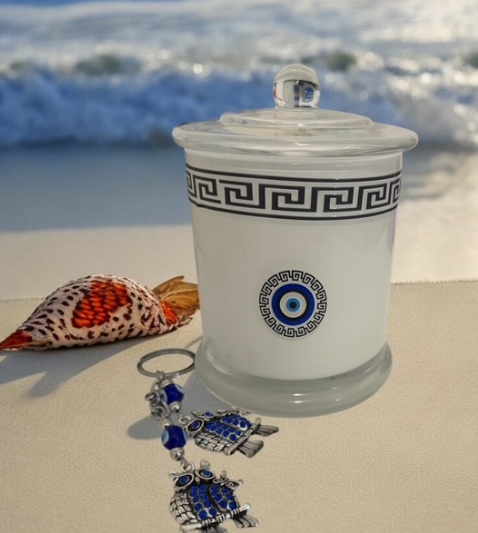My Store
A touch of Greece - Evil Eye & Meander - Fresh Coffee
A touch of Greece - Evil Eye & Meander - Fresh Coffee
Couldn't load pickup availability
Having a coffee is a huge thing in Greece. However, while the drink itself is important, the expression “going for a coffee” doesn’t have much to do with the actual coffee consumption. Instead, it indicates meeting for a chat and a catch-up.
While coffee was originally known as Turkish coffee in Greece, things changed in the 1960s, mostly for political reasons. Nowadays, Greeks commonly refer to this drink as Greek coffee, or Ellinikos kafes.
As Greek coffee is unfiltered, a sediment consisting of the Greek coffee grounds forms at the bottom of the cup – be careful not to drink it! And even if you are not a huge coffee drinker, you should indulge in a cup of Greek coffee once, just for the experience.
FRESH COFFEE
Dark roasted coffee bean fragrance with a touch of chocolate. The closest scent to real coffee in a fragrance.
Top Notes: Buttercream Almond
Middle Notes: Coffee Bean Malt
Base Notes: Vanilla Bean Sugar Cane
* Keyrings are selected randomly
The story behind the Evil eye:
In Greece, while gazing at tourist shops you will certainly notice many amulets and pieces of jewelry on sale portraying a blue eye. You will also see almost all the Greek people wearing many types of jewelry with a blue eye on it including rings, necklaces, bracelets, and other accessories.
But have you ever wondered what these blue eyes symbolize? The concept of the evil eye, as we used to call it or ‘kako mati’ in Greek, was born back in Classical antiquity when the Greek civilization was at its peak.
It was first recorded over 5,000 years ago on clay tablets in Mesopotamia. Until today it endures an integral part of Greek culture– not just in Greece, but in various places around the world where Greek communities still exist.
The evil eye is essentially a symbol to deterrent the wicked energy that a person can transmit to another. This may happen when he says -or even thinks, as they say- something negative about him, and it is based on the thought of ‘an eye for an eye’. It is even believed that the evil eye can be caused without harmful purpose from admiration or commendation.
Share




